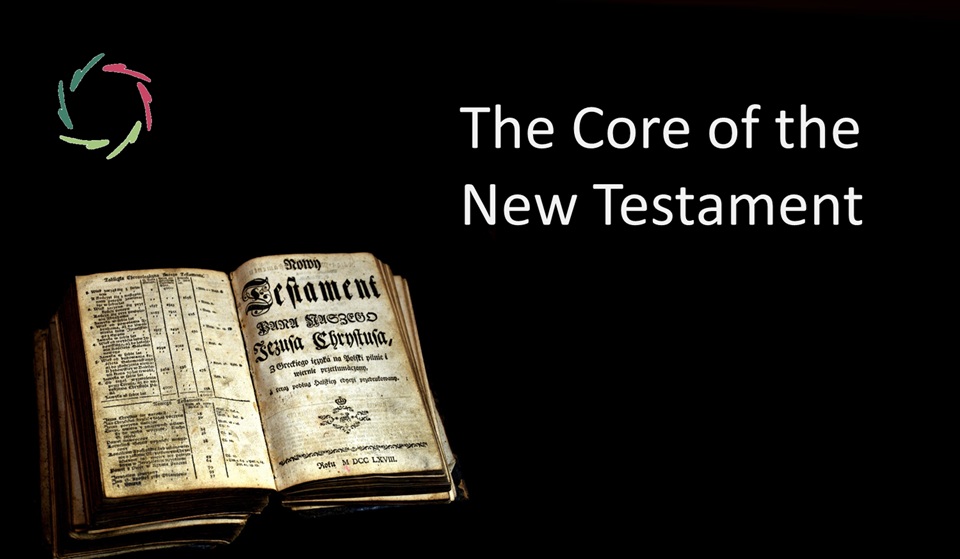Open Religion in Every Religion

Open Religion can be seen as a direction that can be taken from any conceptual religion. Alternatively, it can be seen as potentially present within the latter ― making Openness more easily accessible to many.
I write of ‘religion’ here in a broad sense. For instance, Buddhism is another religion in which Open Religion can be recognized. In this case, it is profoundly related to the idea of Eastern Enlightenment.
My standpoint is radically one of Open Religion ― with no intention to offend anyone or draw anyone out of his belief system. Open Religion is an invitation toward a gentle slope. Getting acquainted with Open Religion makes the slope gentler.
Already present
One must not necessarily get out of one’s religion to encounter Open Religion. In the best case – from the Open viewpoint – it is already present inside. Even more, one has a higher chance to find Open Religion when deepening one’s religion while experiencing it more genuinely.
It’s a challenge every religious person can take and should take if possible (personally, socially). Again, note that the direction is toward inside, with the aim to optimally respect one’s religious feelings, heighten them, and transcend strictly conceptual thinking that is, eventually, incompatible with them.
This is a choice between religion and no-religion, both within one’s religious context.
Anyone can make a choice, then look at the context. Open Religion is like the poetic inside the poem. If you take it out, you have no poem, just stuff. It lacks the essence – cf. Triangle of Religion. Yet, with the poem intact, this stuff is crucial, like a jug containing water.
Nevertheless, something may be only religious if it contains within itself Open Religion. Without the water, the jug makes no sense. A merely informative belief is not religious.
Into non-duality
Another term for this is ego-lessness.
A nice and Open entry to this can be found in a Boston talk by the reverend Rowan Williams (bishop, theologian, and poet, archbishop of Canterbury from December 2002 to December 2012). He talks in this about revelation and the actions of God “not being anything like my action or yours.” He sees three core characteristics of God’s actions whereby one can discern ‘revelation’ (versus fairytale) in any religion:
- It does not come out of deliberation between a variety of alternatives.
- It does not have a gap between deliberation/purpose and fulfillment.
- It does not have to negotiate with circumstances that could defeat it.
With this, the reverend describes the ego-lessness of God.
They are also three characteristics of subconceptual mental processing.
Please read that blog. The reverend describes how – certainly in a non-dissociated person – one MNP spontaneously flows into another:
- no conceptual deliberation
- like a bucket overflowing
- entirely deliberately according to circumstances, each time again most congruent to oneself.
It is also the flow of nature, of natural growth and realization; thus also of the subconceptual, being nature inside us. This can show that religion is not about a conceptualization of ‘God.’ It is about a way of looking at everything ― ‘nature,’ if you like, which makes it very Spinoza.
Blossoming from inside
Open Religion can thus grow from inside each distinct worldly religion, in a search for God.
How to? For instance, one can meditate on Openness to deepen one’s religious feelings, with the challenge that these feelings may be the essential aspect of one’s spiritual being. Do you dare to take this challenge ― without forcing yourself? In any case, it is a good exercise in religiosity.
Nothing essential needs to disappear in and through this exercise. On the contrary, you encounter God more directly, even though your ideas about God may drastically change at the surface level.
What do you choose? What would be God’s choice, according to you?
Consequence to interreligious dialogue
Recognizing Open Religion within each others’ beliefs, we will get over and beyond individual religions one day. If you recognize God through the window, it doesn’t substantially matter which window.
Of course, different windows may be construed differently ― interestingly, excitingly, very esthetically. Let’s not fight about them but take a look through several and profoundly enjoy.
May this finally help us to get rid of interreligious insanity.


